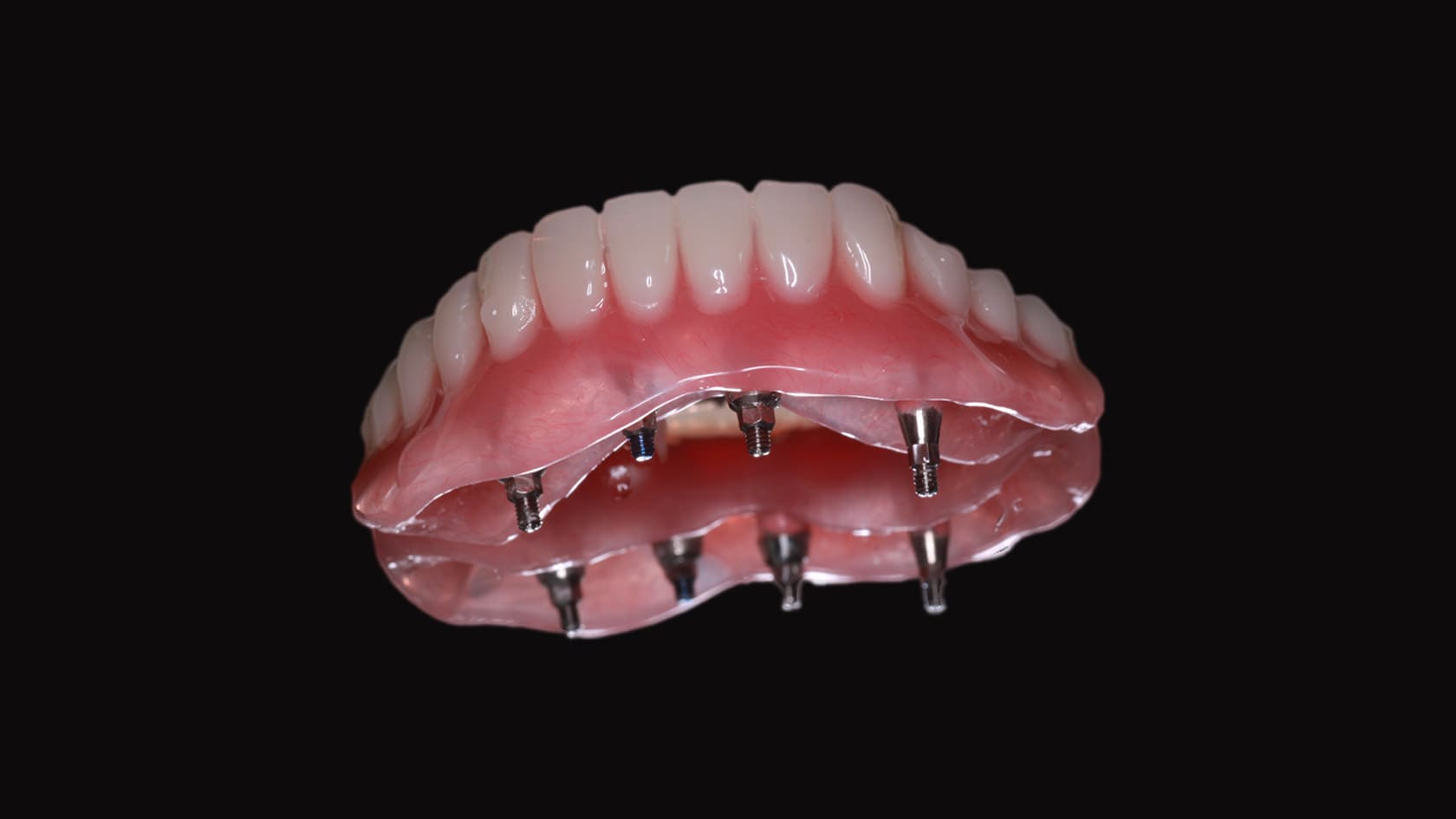All on Four / All on Six Treatments
“All-on-Four” and “All-on-Six” are two popular implant treatment methods that provide a permanent dental restoration for patients with missing or all teeth lost.
“All-on-Four” is performed by placing four implants into a completely edentulous upper or lower jaw. These implants are then connected with a specially designed prosthesis to provide a full set of teeth.
“All-on-Six,” on the other hand, is performed using six implants for patients with missing or all teeth lost. This method is combined with the use of six implants placed into a wider area of the tooth roots to provide greater durability and stability.
Both methods can be used to ensure proper placement of dental implants even if patients have experienced bone loss or insufficient bone density in their jawbone.
These treatments provide a significant advantage for patients experiencing tooth loss. They provide a natural-looking appearance similar to natural teeth both aesthetically and functionally, enabling patients to use their teeth normally. Additionally, implants preserve the jaw structure and prevent bone loss by preventing the movement of other teeth.
İçindekiler

What are the Benefits of All-on-Four and All-on-Six Implants?
“All-on-Four” and “All-on-Six” implant treatment offer many benefits for patients with missing teeth or those who have lost all their teeth.
These include:
Aesthetic appearance: All-on-Four and All-on-Six implant treatments provide an aesthetic appearance that closely resembles natural teeth. This can boost patients’ confidence and help them achieve a better appearance.
Functionality: Implant treatment restores the functionality of patients’ teeth. Patients can use their teeth normally, eat, and speak.
Preventing bone loss: Implants can prevent bone loss in the jaw and support other teeth, helping to preserve the jaw structure and achieve a healthier oral structure.
Comfort: Implants are more comfortable than other dental prostheses. Since they are used as a fixed dental prosthesis, patients do not have to remove or attach the prosthesis.
Longevity: When properly cared for, All-on-Four and All-on-Six implant treatments can be long-lasting. This allows patients to have a long-term solution and use their teeth without the need for regular replacement like other dental prostheses.
Short treatment time: All-on-Four and All-on-Six implant treatments require a shorter treatment time compared to other implant treatments. This can help patients regain their teeth in a shorter period of time.
However, like any dental treatment, All-on-Four and All-on-Six implant treatment can also carry some risks and must be placed correctly. Therefore, it is important for patients considering implant treatment to consult with a dentist to determine if they are suitable candidates for this treatment.
What Should be Considered After All On Four and All On Six Treatment?
After All-on-Four and All-on-Six implant treatment, it is important for patients to pay attention to the following points:
Taking medications regularly: It is important to take prescribed medications regularly to control pain and swelling after implant treatment.
Diet: Soft and easily chewable foods may be necessary for the first few days. Gradually starting to consume hard and hot foods is important.
Oral hygiene: Maintaining implant hygiene is as important as maintaining natural teeth. Implants should be cleaned regularly using a toothbrush and dental floss.
Not smoking: Smoking can increase the likelihood of implant failure. It may be necessary to refrain from smoking for at least a few weeks after implant treatment.
Regular dental check-ups: Regular dental check-ups after implant treatment are important. The dentist will ensure that the implants are healing properly and that no problems are occurring.
Preventing teeth grinding: Teeth grinding can increase the risk of implant failure. Patients who experience teeth clenching or grinding at night should consult with their dentists to find a solution to this problem.
Being careful with sports activities: Avoiding heavy sports activities may be necessary after implant treatment. These activities can increase the risk of implant failure.
Paying attention to these points is important for the success of implant treatment and for the implants to last for a long time. In case of any problems after implant treatment, it is necessary to consult the dentist as soon as possible.